You can correlate these questions with parameters such as working duration, weather conditions, and the operator’s behavior toward the machine. The meaning of lifespan is the time over which any equipment depreciates. And the lifespan of your heavy equipment is an essential aspect.
The average lifespan of construction equipment is different from size to size, machine to machine, and many factors will involve how long these components continue in working condition. An excavator’s average life can last between 5,000 and 10,000 hours, with above mention lines, without damage and plenty of maintenance. Various pieces of equipment can be more tolerant of pushing past their expected lifetimes.
As components break down, you can compare the benefits of repair and replacements against the value of retiring them and selling the equipment. When you find that the cost outweighs the value of the equipment, it is time to look at refurbishing or purchasing a new machine. What is the average excavator lifespan, and how do I extend it? There are some different factors discussed in this article.
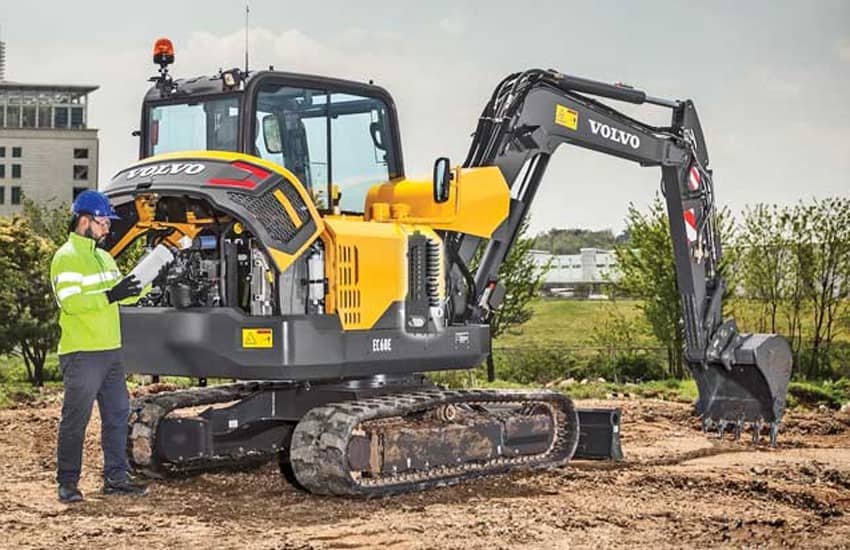
Table of Contents
ToggleHow Do Excavators Work?
We have first to know how they work. Excavators are popular vehicles used for earthmoving, with a bucket, arms, rotating cabs, and movable tracks. These components come with superior digging power and mobility in heavy equipment to perform different functions.
The excavator operator uses pedals and levers to drive the equipment and move backward and forwards. The diesel-powered engine and hydraulic motors activate these to control the arm of the excavator.
The excavator arm: The arm of equipment composed of excavator parts. It is fixed into the lower frame chassis. It consists of three hydraulic pistons that operate in tandem with steel piston arms.
Bucket loader: The bucket loader is connected using a hinge. It extends the widens the section at the increases in girth, providing further reach for the operator. The help of a third piston activates the bucket loader, enabling the collection of debris into the bucket.
Tracks: The excavator fixed tracks to function. The tracks are worked utilizing manipulating gears that fuse with the engine.
Backward and Forwards: The hydraulic excavator uses gears to move backward and forwards. Use the track to allow the machine to turn.
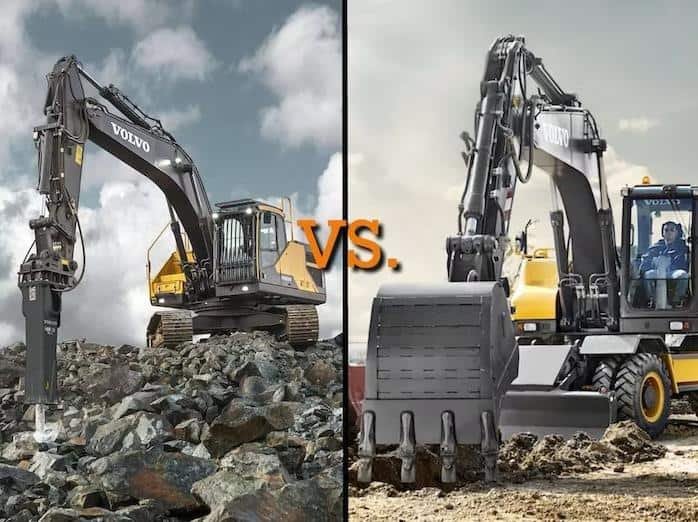
Types of excavators
The excavators have Different types. Every excavator has its lifespan. We outline different types of excavators.
Crawler Excavators:
The crawler excavator runs on two rotating tracks instead of wheels, called a crawler-like tank. It is used for Mining, landscape grading, and trench digging. The crawler uses hydraulic power and is slower than a wheeled excavator, and its tracked chassis makes it more stable. It’s slower than a wheeled excavator. But Good for uneven terrain.
Wheeled Excavators:
The wheeled excavator is the same as the crawler excavator, but it has wheels instead of tracks. Best on flat hard surfaces and fast and easy to move on concrete. At the same time, it is not suited for sites with soft soil or hills and slopes.
Long Reach Excavators:
The long-reach excavator has a long arm and boom range of 40 to 100 feet. Its length horizontally makes it possible to reach construction zones. These types of excavators are best for jobs where the terrain or construction site prevents the machine and operator from getting too close, such as demolition projects over a river or lake. But the long arm makes it impossible to excavate in tight spaces.
Hydraulic Shovels:
It is called power shovels and is the most potent type of excavator. It is commonly used for Mining and heavy digging projects and is also suited to handle any job that requires heavy lifting and hauling of large rocks. Hydraulic Shovel has a powerful engine and large bucket capacity.
Suction Excavators:
The Suction Excavator, also called a vacuum excavator, includes a suction pipe that functions as a high-pressure vacuum. Working Fragile digging jobs, debris cleanup, and underground projects at 200 miles per hour speeds. It has less chance of damaging the surrounding area or underground utilities. While the suction pipe is usually only 30 centimeters or less in diameter, that does not work for large-scale projects.
Dragline Excavators:
The dragline excavator is more significant than the standard and operates differently. It is used for Deep pile driving, harbor construction, surface mining, deep excavation, road excavator, and underwater operations. The dragline system makes the excavator best for excavating underwater.
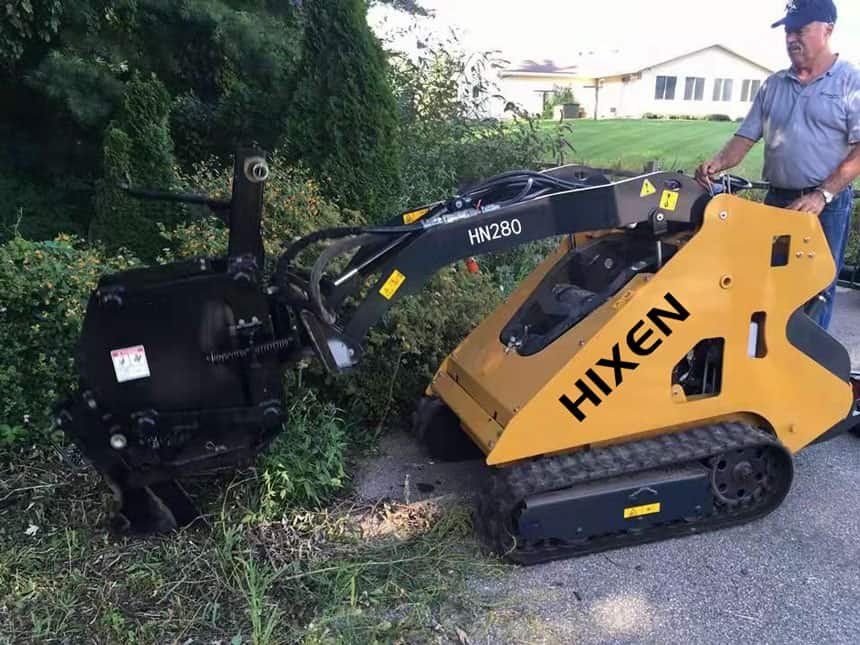
Skid Steers:
The skid steer and a standard excavator have the most significant difference from a skid steer. Skid steers are used for small projects, residential work, site clearing, debris removal, and pool clearing. Its size makes it ideal for narrow areas or job sites with limited space. While not perform well on uneven or muddy, sandy or snowy terrain because a skid steer is on wheels instead of a track.
Excavators lifespan vs. Mini Excavators lifespan
The mini excavator and standard excavator are best for their work and place.
- Choosing an equipment type based on your project demands is always essential.
- The standard excavator has 5,000 to 10,000 working hours, while a high-quality and well-maintained mini excavator has a maximum lifespan of about 10,000 hours.
- The mini Excavators can improve project efficiency based on small projects.
- The stander excavator is best for mega projects.
- When you shop for a used mini excavator, buy a machine manufactured in the last three years with, ideally, less than 2,000 hours.
- If the excavator you are buying has done around 2000 hours already, and still around 5000-7000 of use time. It also depends on its care.
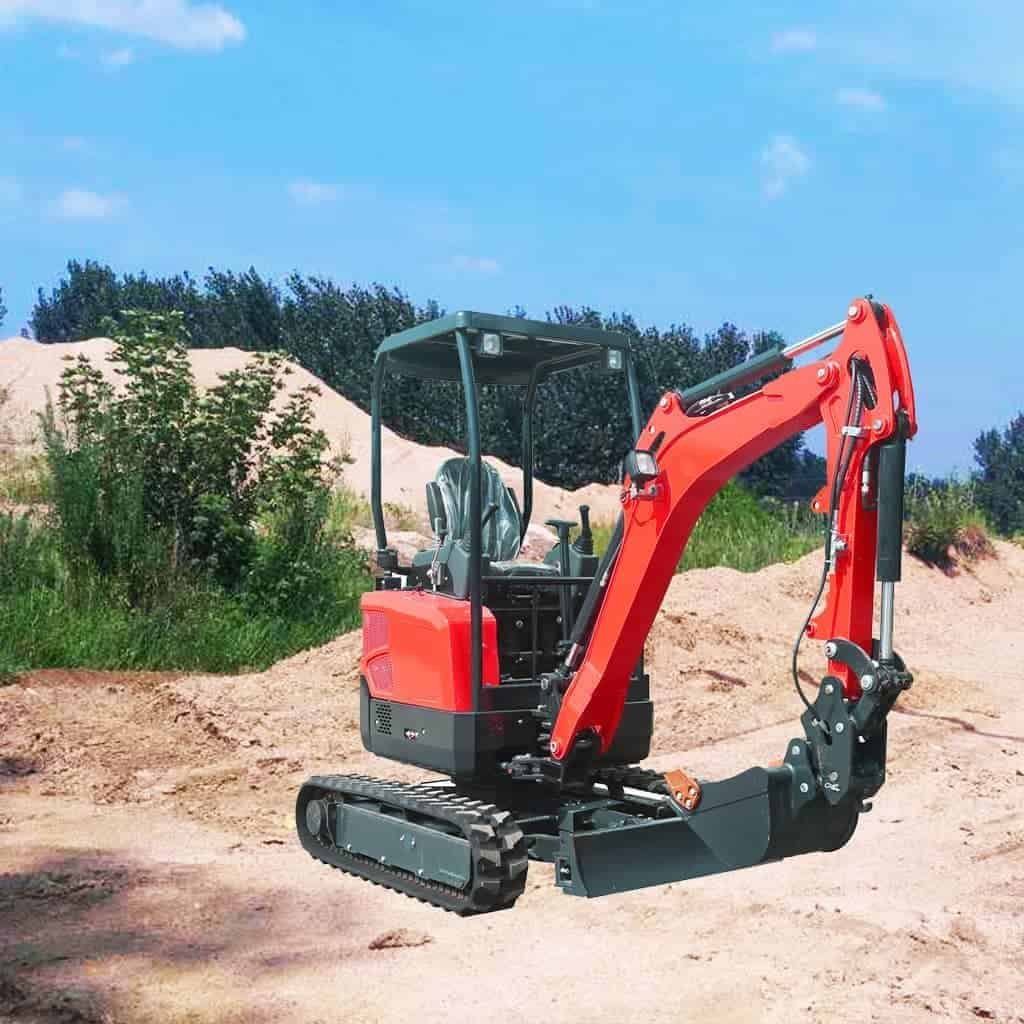
How Do I Extend The Lifespan of Excavator?
If you have your excavator and want to know the average excavator lifespan, how do I extend it? We give tips to ensure you get the most out of it.
Prevent Dirt Buildup
After doing a construction job with your excavator, you have to deal with dirt. Mud and debris not only offer an unpleasant look but also cause significant damage to your equipment over time. Dust can block filters and vents, decreasing the overall performance. In contrast, materials like sand and rock increase the wear and tear on the supporting frame under the body of a vehicle. But if you clean correctly of your equipment, make sure that dust and soot do not build up. It will minimize the damage to critical parts of the equipment.
Regular Inspections
Always provide the excavator with an inspection. Carefully look at every part for 5-10 minutes before and after daily use. When you know your machine is in your hand, and if you see something amiss, you can identify it immediately and seek the necessary repair or professional guidance.
If you find something damaging, you immediately fix it because leaving something damaging and still using it for an extended period can worsen the problem. Keep an eye consistently on leaks, chips, and areas in need of greasing.
Train the Operators
Misuse of equipment is one of the most significant reasons for decreasing lifespan. If the operator is not trained or does not know about the machine, he can put extra strain on the equipment, resulting in more frequent breakdowns and the need for replacement parts.
So adequately trained employees can work in the most appropriate way possible.
A piece of construction equipment needs to be handled professionally and carefully to prolong its lifespan. Untrained operators make terrible mistakes that cause significant damage to the excavator.
For example, the engine is not idle for a few minutes before stopping the machine. It can result in a turbocharger failure which repair costs between $1000 to $5000. So, train your operators so they can understand the equipment’s limitations and efficiently handle different construction tasks.
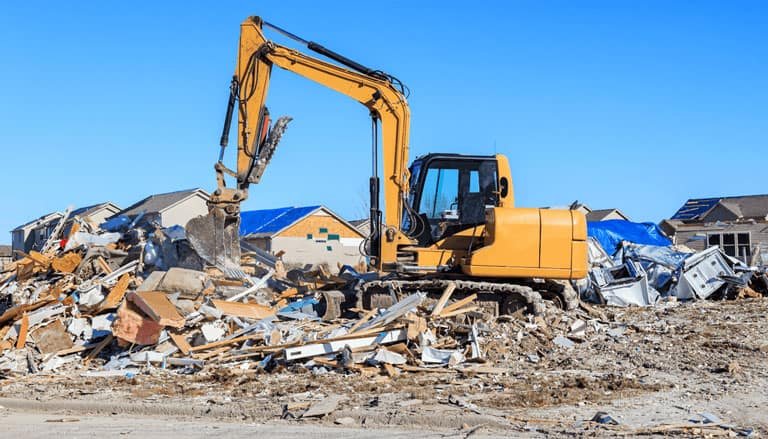
Keep your excavator clean.
The excavator has the dirtiest jobs on site. If you want your excavator in first-class shape, clean it regularly. If you are working on a muddy site, you should give a quick wash before you finish work for the day and don’t let the mud harden because dust and moisture join it and cause rusting of parts, which early break or ultimately damage your equipment.
Parts Lubrication
Properly lubricated equipment is necessary for better work and lasts longer because joints move on a layer of grease. Lubricants are the lifeline for your heavy equipment. Your machines operate under challenging conditions of extreme weather and temperatures to muddy sites. So it is necessary to protect them from excessive friction and work smoothly. In the opinion of Maintenance experts, you should daily grease your equipment but not over grease. Because the grease is welcome, more dust collects on joints, so you have to clean it more frequently.
Another point is to ensure your machines are lubricated enough.
- Frequently check lubricant levels.
- Check oil leaks and grease buildup.
- Do not use unprescribed lubricant in your excavator.
- Choosing suitable lubricants or carefully looking at different types and brands on the market.
Essential tips for selecting the suitable grease
- In summer, thicker grease; tends to thin out under high temperatures.
- In the winter, lower viscosity grease performs better.
- For parts that operate at high temperatures, more viscous grease is better.
- Use synthetic grease for parts that operate at average temperatures.
- For wet conditions, try using marine grease because these lubricants have lithium complex thickeners that protect from salt and fresh water that cause rust.
Lastly, if you want to extend the lifespan of your excavator, then you should grease it properly. Otherwise, you can damage your machine and decrease its lifespan.

Know complete about the job site
Knowing who your excavator works for is very important for extending its lifespan. If you understand the job site, you can know areas have potential hazards that can damage your excavator. So you can be more cautious when working with your excavator on that specific part of the project site.
Do not Overwork
It is wrong to think that your heavy machines are durable, so you can work them from above their limits to complete tasks on time and meet project deadlines. Overwork will decrease the lifespan of the excavator. Constant Overwork will increase the wear and tear of your equipment, which cause mechanical issues.
So be careful with the working time of your excavator. Preventing the improper use of your machines is to read weight limits and provide instructions on operating the machine efficiently. For example, Technical Specifications, the maximum recommended speed, pressure, and weight capacity.
Besides working time, you should also find the working ranges for this particular model. So, its maximum digging depth, maximum cutting height, and maximum loading height. When you do not overwork your machine, you can extend its lifetime.
Maintenance Schedule
A regular maintenance schedule matters a lot for prolonging the lifespan of your machine. It ensures to keep your equipment in good shape promptly and prevents any significant problems in the future. So if you keep an eye on your equipment, you will get a well-performing machine.
In the first step, make a detailed plan for daily visual inspections and regular check-ups by the maintenance experts. Always remember that different excavators have unique needs, so consult the proper maintenance recommendations. The trained operators properly conduct visual inspections of the equipment.
For example, they check the oil and fluid levels and the condition of tires and tracks and make sure that all lights and indicators are working. Another thing also needs an in-depth analysis that only an expert mechanic can give you. The essential aspect of regular maintenance and Repairing needs an in-depth analysis that only an expert mechanic can give you. So the maintenance schedule extended the lifespan of your excavator.

Fill Up The Tank
It would be best if you always filled up your machine’s tank after work, so there is a low risk of water getting into it through rainfall. It will expand the lifespan of your excavator.
Some common factors that extended the lifespan of the excavator
Some excavators have longer useful lifespans than others.
The excavator condition
Pattern and frequency of use
Technology
Compliance regulations
Where and how do you deploy your excavator?
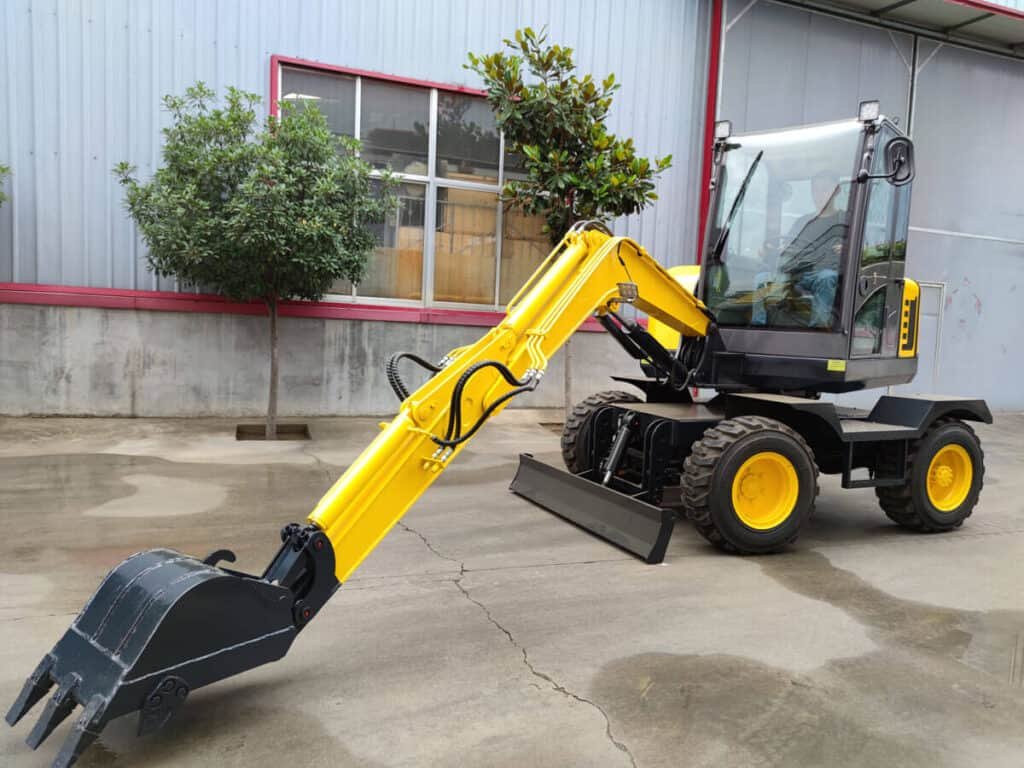
Conclusion
In the bottom line, the question “What is the average excavator lifespan and how do I extend it?” Gives you the answer that excavators are an essential and significant investment for a construction company. With this equipment, these companies continue their business operations successfully. So with care, proper maintenance, and trained operator, you can extend its lifespan and enhance performance.
If you need more information, please contact us for anything.

